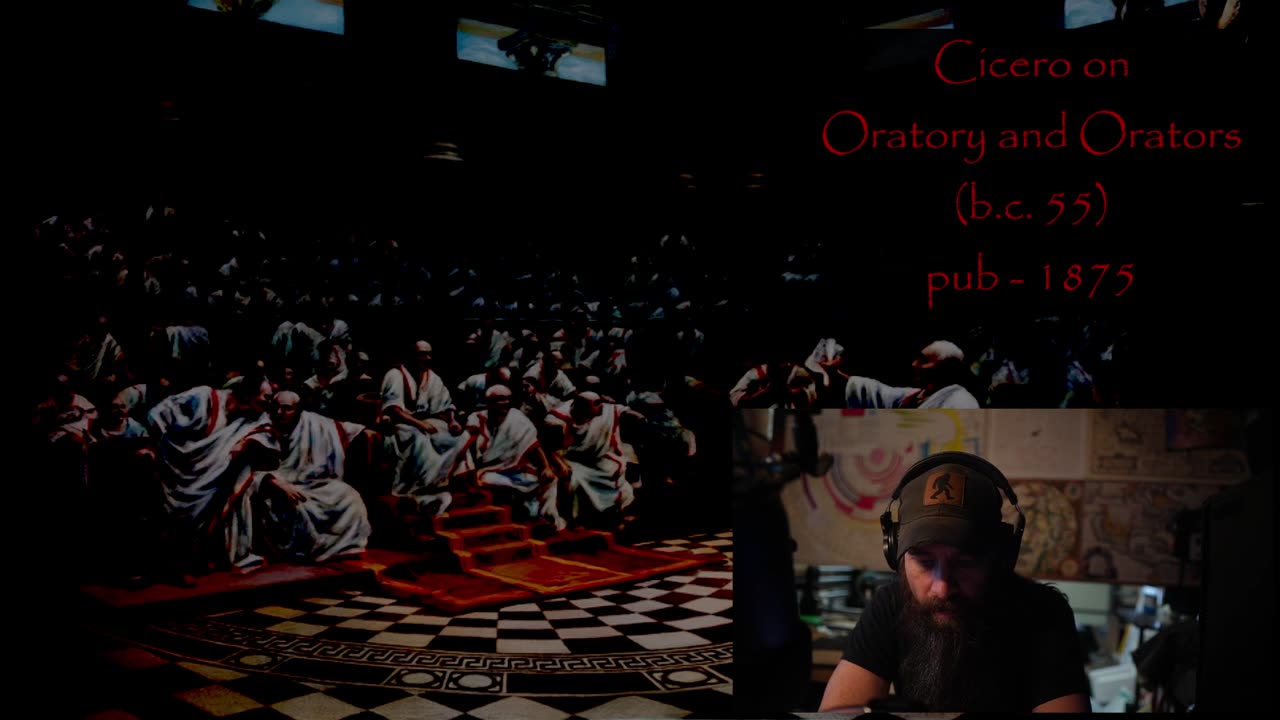Premium Only Content

Cicero on Oratory - B2 - XXV XXVI
Cicero on Oratory - B2 - XXV XXVI
In this video, Cicero discusses the nature of legal causes and the intricacies involved in defining legal terms and the nature of actions in criminal matters. He explains how defenses often revolve around disputing facts or the definitions of actions, particularly in cases involving treason, bribery, and other offenses, illustrating the complexity of interpreting legal documents and the necessity of precise definitions in legal arguments.
Key Points:
Defense Strategies in Law
Cicero explains that most criminal cases employ a defense strategy of pleading 'not guilty.' In cases of bribery or extortion, distinguishing between legal acts of generosity and illegal corruption becomes difficult, necessitating a denial of the charges.
Nature of Legal Disputes
Legal disputes often originate from the questioning of what should be done rather than just the facts of what has occurred. They can revolve around interpretations of terms and definitions essential to the case.
Importance of Definitions
In legal cases, defining the terms that are in dispute is crucial. Cicero emphasizes the danger of poorly defined terms, as they can lead to misunderstandings and misinterpretations in a trial.
Interpretation of Writing
Much debate in legal matters arises from written documents, particularly when there's ambiguity in the text. Cicero discusses how adding missing words can clarify the authors’ intentions and resolve disputes.
Categories of Legal Questions
Cicero delineates three types of legal questions: what is done, what has been done, and what ought to be done. He stresses the significance of understanding the nature and designation of actions in legal contexts.
-
 6:34:50
6:34:50
SpartakusLIVE
11 hours ago#1 Saturday Spartoons on RUMBLE PREMIUM
113K7 -
 1:04:59
1:04:59
Man in America
12 hours ago“Summoning the Demon” — The AI Agenda Is FAR WORSE Than We Know w/ Kay Rubacek
50.5K36 -
 2:16:48
2:16:48
Tundra Tactical
10 hours ago $0.11 earned🎯💥 The World’s Okayest Gun Show 🔫😂 | LIVE Tonight on Rumble!
31.3K -
 3:36:03
3:36:03
Mally_Mouse
1 day ago🌶️ 🥵Spicy BITE Saturday!! 🥵🌶️- Let's Play: Tower Unite!
57.1K2 -
 58:59
58:59
MattMorseTV
10 hours ago $1.61 earned🔴Trump just BROKE Newsom.🔴
73.1K85 -
 18:14
18:14
Her Patriot Voice
10 hours agoWho Is WORSE for NYC: Trump Girl or Socialist?
55K34 -
 3:39:42
3:39:42
SavageJayGatsby
9 hours agoSpicy Saturday with Mally! | Road to 100 | $300 Weekly Goal for Spicy Bites!
51.7K1 -
 3:35:50
3:35:50
FomoTV
11 hours ago🚨 Swamp Theater: FBI Raids Bolton 🕵 Still NO Epstein Files, Trump's Troops & the Red Heifer Hoax 🐂 | Fomocast 08.23.25
23.9K7 -
 6:04:40
6:04:40
Akademiks
15 hours agoRoc Nation & Meg Thee Stallion did a 7 HOUR Deposition with me. Drake Secret Kid Finally Revealed.
60K3 -
 24:19
24:19
Stephen Gardner
11 hours ago🚨BREAKING: FBI Raid of John Bolton’s House Reveals THIS!
62.1K146